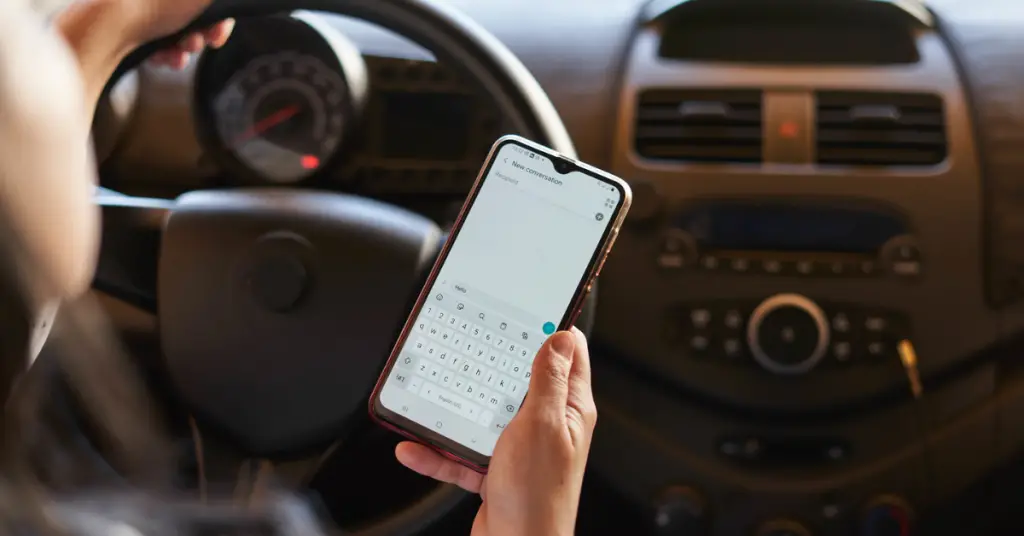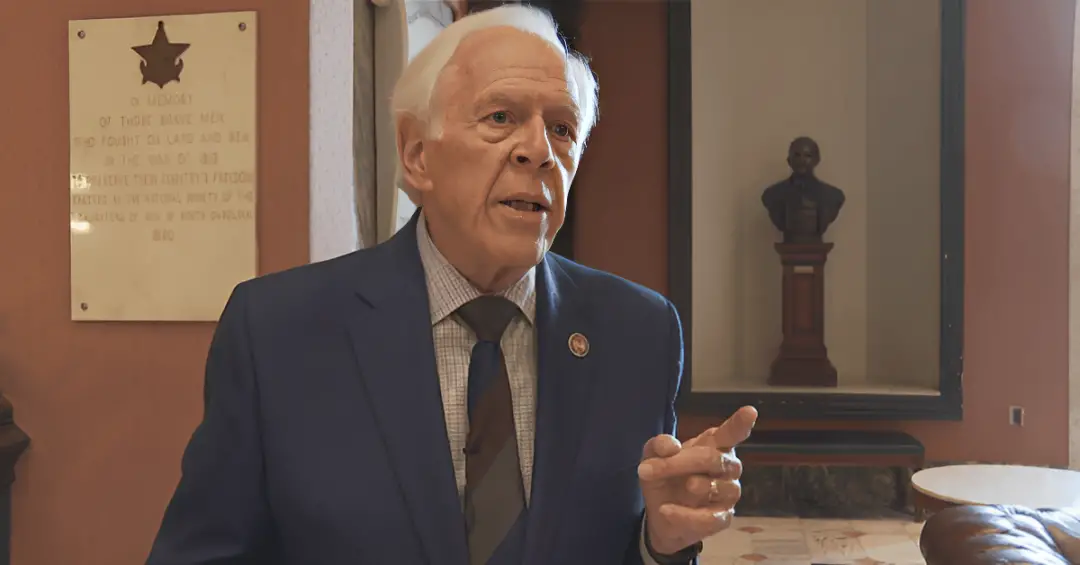Columbia, S.C. (WACH)—A long-awaited proposal to make South Carolina’s roads safer is moving forward. Lawmakers in the state’s House of Representatives have passed a bill that would ban the use of cellphones while driving. The bill, which has been a topic of discussion for several years, has now made its way to the Senate, where it is expected to gain approval.
The proposed law is part of a growing effort across the United States to combat distracted driving. If it becomes law, South Carolina would join 32 other states that have already passed similar legislation, making cellphone use while driving illegal.
Representative Bill Taylor, a Republican from Aiken, has championed the bill for the past eight years. Taylor has made it his mission to reduce the number of accidents caused by distracted driving. In his view, using a cellphone while driving is just as dangerous, if not more dangerous, than driving under the influence of alcohol.
“They are driving blind,” said Taylor, referring to drivers who are distracted by their phones. “They are six times more deadly than people who are drunk.”
Several other lawmakers and traffic safety experts have echoed the statistic that distracted drivers are six times more likely to cause an accident than impaired drivers. Taylor’s statement highlights the severity of the issue, particularly as mobile phones have become such an integral part of daily life. People use their phones to text, check social media, navigate, and even make calls, all while driving, often without considering the risks.
Taylor is not alone in his belief that distracted driving is a serious problem. Representative Chris Wooten, also a Republican, voiced similar concerns. According to Wooten, driving while using a cellphone has become the new version of driving under the influence. He argues that distracted drivers are completely unaware of their surroundings, making them far more dangerous than impaired drivers.
“This has become the new DUI because you’re just completely unaware of what’s going on around you,” said Wooten.
Wooten points out that drunk drivers, although dangerous, are typically aware of their impairment. They often keep their hands on the wheel and focus on getting home or to the next bar without causing harm. On the other hand, distracted drivers are usually too engrossed in their phones to pay attention to the road, which makes them unpredictable and more likely to cause accidents.

This comparison has sparked a larger debate on the dangers of distracted driving. According to the National Highway Traffic Safety Administration (NHTSA), in 2019, distracted driving was a factor in 9% of all fatal crashes in the United States. This is a staggering statistic, considering that distracted driving is often preventable. Laws that ban cellphone use while driving have been implemented in many states, and they have shown positive results in reducing accidents.
The proposed bill in South Carolina aims to strengthen efforts to make roads safer by targeting one of the leading causes of crashes. The new law would prohibit drivers from using their phones for texting, calling, or browsing the internet while driving. However, drivers would still be allowed to use their phones for GPS navigation, as long as it is mounted in a hands-free position.
Support for the bill in the House has been strong, and lawmakers are hopeful that the Senate will approve it as well. Proponents argue that a ban on cellphone use while driving will reduce the number of accidents and save lives. Studies have shown that when drivers are not distracted by their phones, they are more likely to remain focused on the road and respond quickly to changing conditions.
However, some opponents of the bill argue that it could lead to unnecessary fines for drivers who may not have been aware they were breaking the law. They believe that people should have the freedom to use their phones when driving, especially if they need to make an emergency call.
Despite these concerns, many lawmakers in South Carolina remain committed to making the bill a reality. According to Representative Taylor, the bill has widespread support, and he believes it will be passed in the Senate. “This is something that is going to save lives,” Taylor said. “It’s about time South Carolina does something to keep our roads safe.”
The growing push to ban cellphone use while driving comes at a time when traffic accidents have been on the rise in the state. In recent years, South Carolina has seen an increase in the number of fatal accidents, and lawmakers are looking for ways to curb this trend. In fact, the state’s road safety issues have led to national attention. South Carolina has been ranked as one of the most dangerous states to drive in, with high rates of traffic fatalities and injuries.
If the bill becomes law, South Carolina will join 32 other states that already have similar laws in place. These states have seen positive results from banning cellphone use behind the wheel, with a reduction in the number of distracted driving accidents and fatalities. The hope is that South Carolina will follow suit and help reduce the risk of deadly crashes caused by drivers who are not paying attention to the road.
For many, the issue of distracted driving hits close to home. Families and communities across the state have experienced the devastating impact of traffic accidents caused by drivers who were texting or talking on the phone while driving. Lawmakers in South Carolina believe that this law will help protect families and make the state’s roads safer for everyone.
While the bill has made significant progress in the House, it is now up to the Senate to decide whether it will become law. Supporters are optimistic, but they know that there will still be challenges ahead. Regardless of the outcome, the discussion about distracted driving will continue to be an important topic in South Carolina and across the nation.
Disclaimer: This article has been meticulously fact-checked by our team to ensure accuracy and uphold transparency. We strive to deliver trustworthy and dependable content to our readers.




